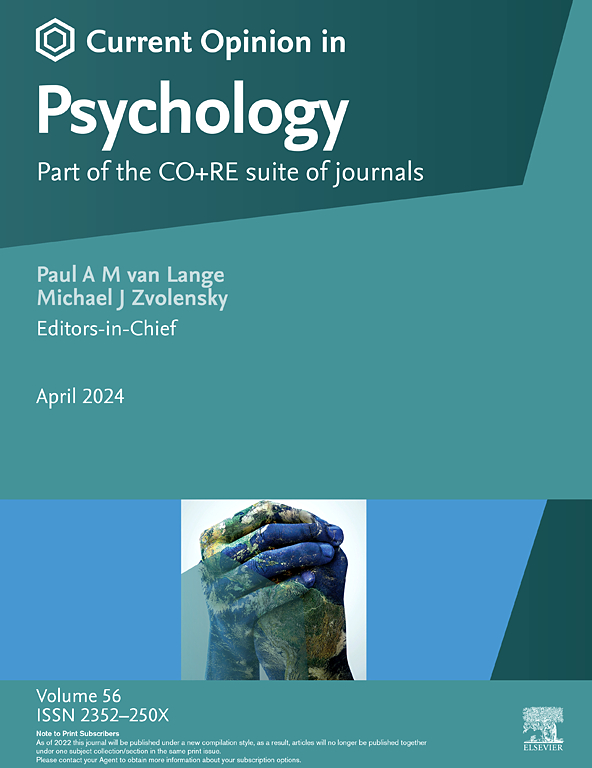Self-control ≠ temporal discounting
IF 6.3
2区 心理学
Q1 PSYCHOLOGY, MULTIDISCIPLINARY
引用次数: 0
Abstract
This paper explores self-control beyond the framework of time discounting, as is conventional in economics and decision research. Contrary to the notion that self-control failures stem from hyperbolic time discounting or present bias, we argue that self-control problems represent conflicts between the motivational thrusts of affects – i.e., emotions, physiological states, and cognitive motivational feeling states – and deliberations about the best course of behavior. Drawing upon theoretical foundations and empirical evidence, we highlight how affective states can both undermine and necessitate self-control. We critique the temporal discounting model for its inability to account for diverse self-control scenarios and propose that effective self-regulation often involves strategies to avoid or manage affective triggers, thus providing a more comprehensive understanding of self-control mechanisms.
自我控制≠时间折扣。
本文超越了经济学和决策研究中传统的时间贴现框架来探讨自我控制问题。与自我控制失败源于双曲时间贴现或现在偏差的观点相反,我们认为自我控制问题代表了情感--即情绪、生理状态和认知动机感觉状态--的动机推力与最佳行为方案的考虑之间的冲突。根据理论基础和经验证据,我们强调了情感状态如何既能破坏自我控制,又能促进自我控制。我们批评时间折扣模型无法解释各种自我控制情景,并提出有效的自我调节通常涉及避免或管理情感触发因素的策略,从而提供了对自我控制机制的更全面理解。
本文章由计算机程序翻译,如有差异,请以英文原文为准。
求助全文
约1分钟内获得全文
求助全文
来源期刊

Current Opinion in Psychology
PSYCHOLOGY, MULTIDISCIPLINARY-
CiteScore
12.10
自引率
3.40%
发文量
293
审稿时长
53 days
期刊介绍:
Current Opinion in Psychology is part of the Current Opinion and Research (CO+RE) suite of journals and is a companion to the primary research, open access journal, Current Research in Ecological and Social Psychology. CO+RE journals leverage the Current Opinion legacy of editorial excellence, high-impact, and global reach to ensure they are a widely-read resource that is integral to scientists' workflows.
Current Opinion in Psychology is divided into themed sections, some of which may be reviewed on an annual basis if appropriate. The amount of space devoted to each section is related to its importance. The topics covered will include:
* Biological psychology
* Clinical psychology
* Cognitive psychology
* Community psychology
* Comparative psychology
* Developmental psychology
* Educational psychology
* Environmental psychology
* Evolutionary psychology
* Health psychology
* Neuropsychology
* Personality psychology
* Social psychology
 求助内容:
求助内容: 应助结果提醒方式:
应助结果提醒方式:


